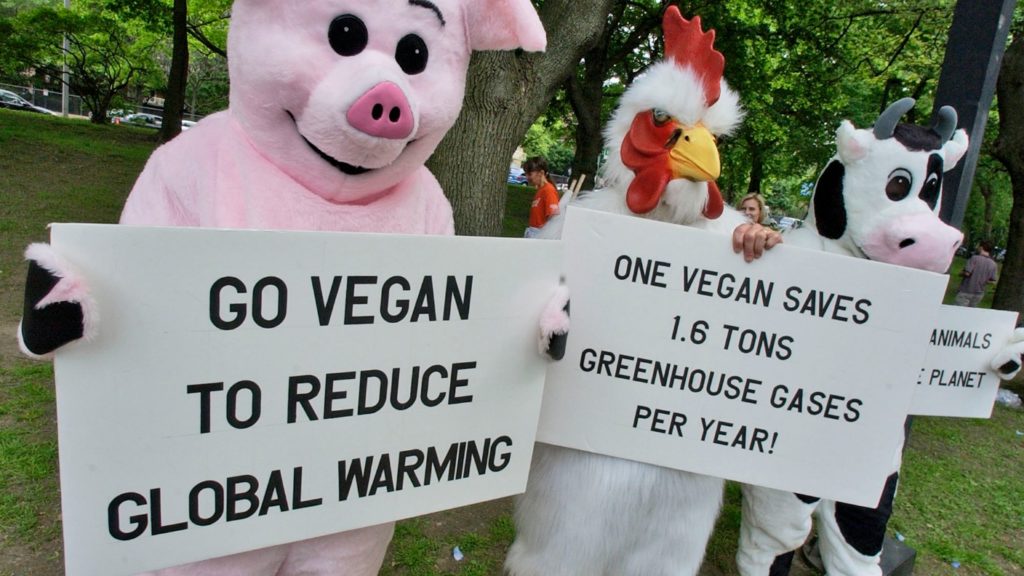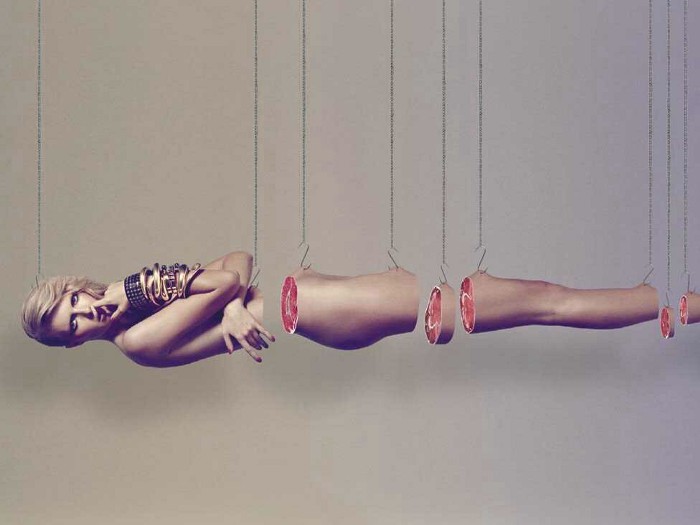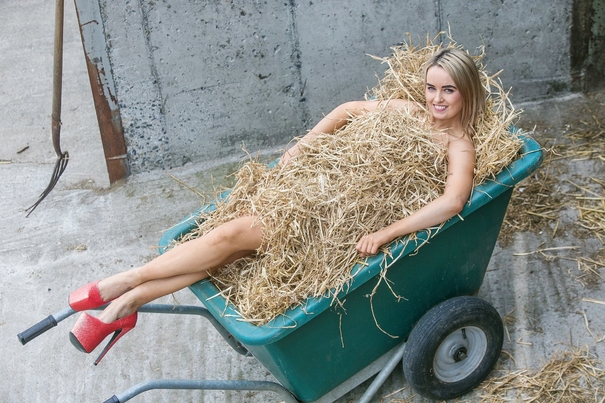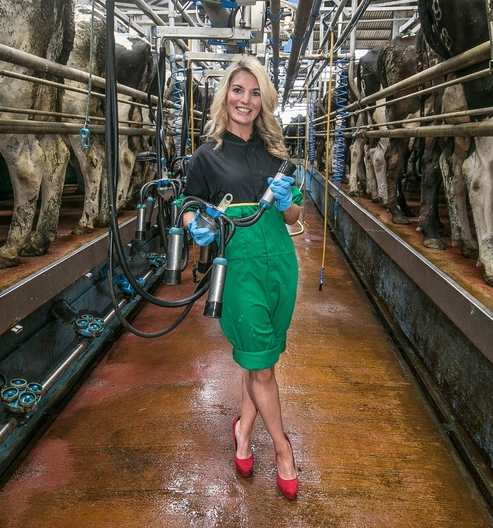Content Warning: Contains uncomfortable discussion of sexual harassment of girls, women, and dogs.

Melly getting ready for a winter walk.
It was a muggy, July mid-afternoon the first time a man hit on Melly, my Pitbull mix.
We strolled up Carteret Street towards the local park. Wiping off sweat beads from my forehead, I soaked in the scenery. The rows of houses’ shutters knitted together, blocking out the oppressive sun rays. The yellow paint seemed to melt off the street pavement. It was quiet, save for the faint buzz of air conditioning units and the hiss of mosquitos. Melly, already panting, sniffed half-heartedly at a tree.
“Sorry, Mel,” I rubbed her white-and-brindle spotted head, “I know it’s hot.”
At twenty-one-years-old, I deftly calculated our walking routes down to a fine science. I was my family’s designated dog walker since we adopted our first dog, Cody. Nine years of dog walking taught me the art of avoiding sexual harassment. I learned Jaguars owners were just as likely as unnamed Junker cars drivers to ogle out their window. Walking with earbuds in, even if music wasn’t playing, lowered the honking rating; harassers won’t bother if they don’t have an audience. It’s important to balance out the amount of naked skin: wear shorts with t-shirt or capris with a tank-top. Never wear a tank top with shorts.
I checked my watch. It was 3pm. If I stuck to the residential Carteret, Midland, and turn around at Walnut Street, I could still wear my cool summer dress without being harassed. But, I needed to move quickly on Midland; despite being buried in the suburban thicket, there were still plenty of cars zipping up and down.
Chills always ran down my spine whenever I turned onto Midland. I was twelve, walking down this road, the first time a car followed me.
At first, I did not notice the reptilian green pick-up truck crawling next to me. I wore my earbuds and I was looking down at my dog at the time, Cody. Suddenly, the hairs on the back of my neck prickled. I jerked my head to my left and found a middle-age man sitting in driver’s seat. Small framed sunglasses covered his eyes. His features were solemn as he peered out the window towards me.
I froze, unsure what to do. A million questions raced through my head: what do I do? Why did he stop? Is he lost?
“Can I help you?” I asked.
He didn’t answer. The truck continued to slide forward. The man moved his head, never looking away from me. Suddenly, the driver slammed on the gas pedal and screeched around the corner.
I shrugged and brushed off the incident; it was a fluke. Maybe he was looking at the house behind me. Maybe I had something in my teeth. Cody and I walked further down the road. He stopped and sniffed a pile of newspapers.
As I tapped my foot, a low rumble of a car came towards us. Brakes screeched to a halt.
Looking up slowly, I came face to face again with the green pick-up truck. This time, the man pulled over to curb and lowered his sunglasses. His blond moustache sneered. Mud eyes scavenged my pre-pubescent body. It felt like his pupils slipped underneath my flat t-shirt and unbuttoned the top of jean shorts. When he met my eyes, the man bit his lip, winked at me, and sped off before I could even scream.
That night, I scrubbed every inch of my body till I glowed crimson. And yet, I still couldn’t get feeling of shame off of my skin.
My mom teared up when I told her about the incident. She gripped me to her chest and whispered, “I’m so sorry, honey. I didn’t think it would happen so soon.” Mom then passed down to me my womanly inheritance: catcalling coping mechanisms, eye avoidance tactics, and developing thick skin techniques.
When I tried telling it to my girlfriends, they sighed.
“I mean yeah, it’s creepy, but I mean it’s kind of flattering, too,” they insisted.
So when the clunker Honda Sedan slowed down next to me and Melly, I had a thousand years’ worth of knowledge. Eyes to the ground, I jerked her leash with one hand, and flatten the back of my white dress with the other. Melly scoffed. She dug her paws in the ground. At 65 pounds of pure muscle, she was not going anywhere; she was going to sniff that tuft of grass whether I liked it, or not.
“Melly, walk walk,” I snapped. The Sedan pulled over to the curb across from me and Melly, sputtering to a stop. Its tawny body clashed with the electric green driver’s door. The back side passenger’s side window was covered in duct tape and cardboard.
I cursed to myself for not bringing any treats.
“Melly, let’s go,” I urged, clicking my tongue. A single brown ear shot up, but she didn’t move from sniffing the grass.
“Hey,” a man’s voice called out to me. Gulping, I looked up.
The driver leaned against the mismatched door. He was young thirty, with a shimmery bronze skin, black hair, and black eyes. He wore a muscle-tee, jeans, with two black sweatbands around his wrist, and a black bandanna.
“I was wondering—” he began.
I gulped and took a step behind Melly. Her head was towards the street and her hindquarters to me. I nudged her back leg, trying to get her to look up. Melly was a very loving dog; however, she was fiercely protective. If the man could just get a glimpse of her jaws, may he would leave me alone.
“—is that a girl?” he asked.
I blinked, “What?”
The man motioned to Melly, “Is it a girl?”
Stunned, I nodded, “Yes, she’s a girl.”
He crouched on the other side of the street, inspecting her like a car needing a tune-up. Melly kept one eye on him while chomping on grass. The hairs between her shoulders stood-up ever so slightly.
I scrunched my forehead. There was something familiar about his expression.
“She’s a real beauty,” he said.
“I know.”
He sat on his heels and looked up at me.
“Can I breed it with my dog?” he asked.
My jaw dropped, “You want to do what with her?”
“Breed it,” he repeated, “I’ve been searching for a girl with that same brindle and white color. Wait, does she have that diamond spot on the top of her head. Man, that’s perfect!” he said.
I could have told him that Melly was found on the streets, abandoned by her previous owner. She was twenty-three pounds and sickly when my family adopted her. After she started to gain some weight, her stomach bulged out. The vet found her uterus sloshing with retained fluid after an ultrasound. When the vet spayed her, he found her uterus corroded with disease. The vet reasoned it was probably because she was breed too early, compounded by neglect.
I settled on, “She’s fixed.”
The man scowled, “What the hell did you do that for?”
Suddenly, it dawned on me. He was inspecting my dog the same way the man in the pick-up truck inspected at me. It was a certain configuration: the narrowed brows, dilated pupils, taunt mouths. It wasn’t about lust, but about ownership. Melly and I did not exist. To them, she was only good for her fur, diamond spot, and uterus. I was only good for my legs.
Anger burned the back of my throat. I was tired of putting up with the stares, catcalling, and honking. I was tired of adjusting my route and my body to prevent others from objectifying me. Melly’s past owners, the drivers in the green truck, and the man standing before me did not care that Melly and I snore, enjoyed napping, or loved peanut butter. They only cared how well we pranced.
I wanted to say, “Because people like you force puppies like her to get pregnant, pop out more puppies, and then just leave her to die.”
Instead, I gripped the leash, and said, “She was sick.”
He clucked his tongue, “Too bad.”
The man got back in his deprecated car, winked at Melly, and sped off.
Staring after his car, I broke out in hysterical laughter. I fell to the sidewalk and doubled over, tears springing to my eyes. Melly nudged my face with her wet, brown nose and licked my cheek.
“How about that, Melle-Belle,” I held her downy face between my palms, “you get hit on more often than I do.”
“You should be flattered,” I said. The sarcasm tasted bitter on my tongue.
 Sarah McGrail is currently a senior at Monmouth University. She is majoring in English with a concentration in Creative Writing and a minor in Sociology. Her poems, “A Ten Minute Love Story,” “Blind Reflection,” and “Victoria Tube Station Food Chain” were published in the literary magazine, The Monmouth Review in Spring 2015 and in the upcoming issue Spring 2016. She was awarded the 2015 Monmouth University English Departmental Creative Writing Award for her nonfiction essay, The Martian. She is currently a research assistant for Monmouth University’s director of Sociology and Gender Studies program, Dr. Johanna Foster.
Sarah McGrail is currently a senior at Monmouth University. She is majoring in English with a concentration in Creative Writing and a minor in Sociology. Her poems, “A Ten Minute Love Story,” “Blind Reflection,” and “Victoria Tube Station Food Chain” were published in the literary magazine, The Monmouth Review in Spring 2015 and in the upcoming issue Spring 2016. She was awarded the 2015 Monmouth University English Departmental Creative Writing Award for her nonfiction essay, The Martian. She is currently a research assistant for Monmouth University’s director of Sociology and Gender Studies program, Dr. Johanna Foster.
















